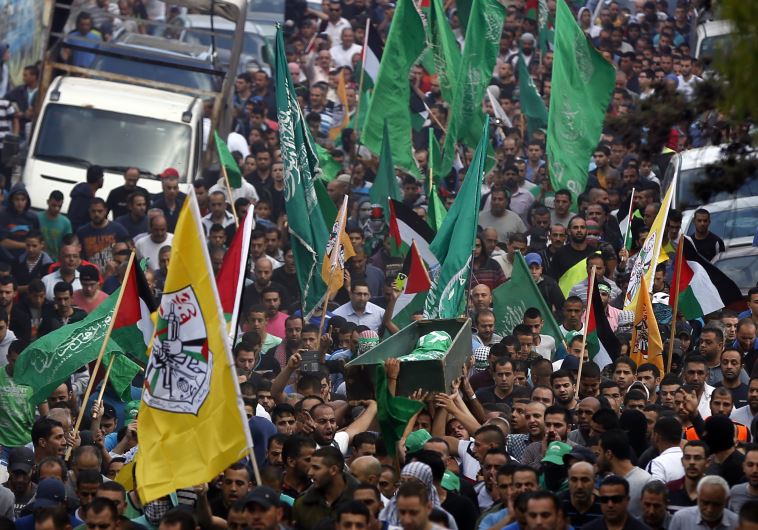Israel court endorses government policy on Palestinian terrorists' bodies
Two petitions for return of nine corpses to east Jerusalem Arab families for burial had some successes and left some unanswered questions.
 Funeral in the Shuafat refugee camp in east Jerusalem, on October 10, 2015(photo credit: AHMAD GHARABLI / AFP)Updated:
Funeral in the Shuafat refugee camp in east Jerusalem, on October 10, 2015(photo credit: AHMAD GHARABLI / AFP)Updated: